
Jane Eyre is a novel by the English writer Charlotte Brontë. It was published under her pen name "Currer Bell" on 19 October 1847 by Smith, Elder & Co. of London. The first American edition was published the following year by Harper & Brothers of New York. Jane Eyre is a bildungsroman that follows the experiences of its eponymous heroine, including her growth to adulthood and her love for Mr Rochester, the brooding master of Thornfield Hall.

Middlemarch, A Study of Provincial Life is a novel by English author George Eliot, the pen name of Mary Ann Evans. It appeared in eight installments (volumes) in 1871 and 1872. Set in Middlemarch, a fictional English Midlands town, in 1829 to 1832, it follows distinct, intersecting stories with many characters. Issues include the status of women, the nature of marriage, idealism, self-interest, religion, hypocrisy, political reform, and education. Despite comic elements, Middlemarch uses realism to encompass historical events: the 1832 Reform Act, early railways, and the accession of King William IV. It looks at medicine of the time and reactionary views in a settled community facing unwelcome change. Eliot began writing the two pieces that formed the novel in 1869–1870 and completed it in 1871. Initial reviews were mixed, but it is now seen widely as her best work and one of the great English novels.
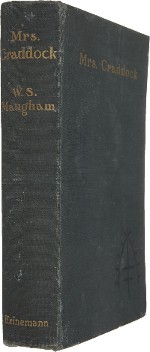
Mrs Craddock is a novel by William Somerset Maugham first published in 1902.

Frances Ellen Watkins Harper was an American abolitionist, suffragist, poet, temperance activist, teacher, public speaker, and writer. Beginning in 1845, she was one of the first African American women to be published in the United States.
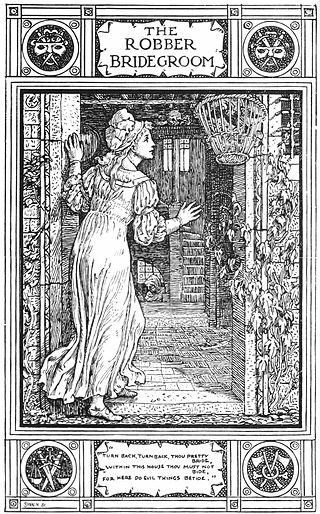
"The Robber Bridegroom" is a German fairy tale collected by the Brothers Grimm, tale number 40. Joseph Jacobs included a variant, Mr Fox, in English Fairy Tales, but the original provenance is much older; Shakespeare alludes to the Mr. Fox variant in Much Ado About Nothing, Act 1, Scene 1:
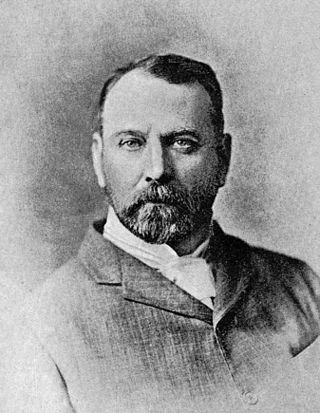
Sydney Grundy was an English dramatist. Most of his works were adaptations of European plays, and many became successful enough to tour throughout the English-speaking world. He is, however, perhaps best remembered today as the librettist of several comic operas, notably Haddon Hall.
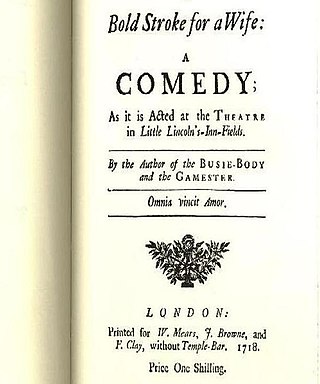
A Bold Stroke for a Wife is Susanna Centlivre's 18th-century satirical English play first performed in 1718. The plot expresses the author's unabashed support of the British Whig Party: she criticises the Tories, religious hypocrisy, and the greed of capitalism.
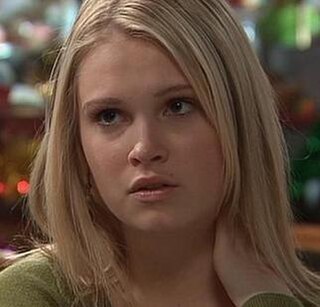
Janae Timmins is a fictional character from the Australian soap opera Neighbours, played by Eliza Taylor-Cotter. She made her first screen appearance during the episode broadcast on 4 April 2005. The character was created by executive producer Ric Pellizzeri as part of the new Timmins family, joining the established character Stingray Timmins. Janae is characterised as a feisty character who is unafraid of physical confrontation. She has low self-esteem due to her father Kim Timmins being absent during her childhood. Janae is featured in various storylines including having her drink spiked with rohypnol, an HIV scare and the victim of an attempted sexual assault.

Love on the Dole is a 1941 British drama film starring Deborah Kerr and Clifford Evans. It was adapted from the novel of the same name by Walter Greenwood. It was the first English-made feature film to show English police wielding batons against a crowd.

Francis Annesley, 1st Viscount Valentia, was an English statesman during the colonisation of Ireland in the seventeenth century. He was a Member of Parliament for both the English and Irish houses, was elevated to the Irish peerage as Baron Mountnorris, and later gain the additional title Viscount Valentia. He is best remembered for his clash with the Lord Lieutenant, Thomas Wentworth, who in order to render Annesley powerless had him sentenced to death on a spurious charge of mutiny, although it was clearly understood that the sentence would not be carried out.
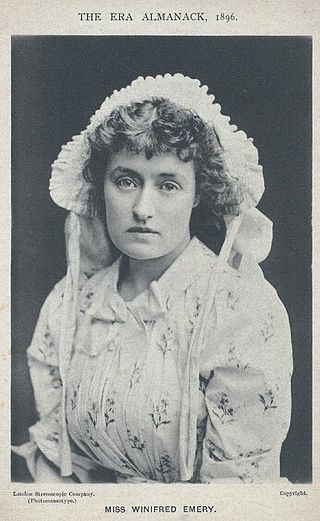
Winifred Emery was an English actress and actor-manager of the late 19th and early 20th centuries. She was the wife of the actor Cyril Maude.

The Wishing Ring: An Idyll of Old England is a 1914 American silent comedy-drama film directed by Maurice Tourneur and starring Vivian Martin. Based on the 1910 play of the same name by Owen Davis that ran on Broadway starring Marguerite Clark, the film was shot in Fort Lee, New Jersey by the World Film Corporation.
Virginia's Husband is a 1934 British comedy film directed by Maclean Rogers and starring Dorothy Boyd, Reginald Gardiner and Enid Stamp-Taylor. The play by Florence Kilpatrick on which the film is based, had previously been adapted as a silent film in 1928.

Marshall Stedman was an American stage and silent screen actor/director, playwright, author and drama teacher.

Sowing the Wind is a 1921 American silent drama film directed by John M. Stahl and starring Anita Stewart, James Morrison, and Myrtle Stedman. It is an adaptation of the British play Sowing the Wind by Sydney Grundy which had previously been turned into a 1916 film of the same title.
Sowing the Wind is a 1916 British silent romance film directed by Cecil Hepworth and starring Henry Ainley, Alma Taylor and Stewart Rome. It is based on the play Sowing the Wind by Sydney Grundy.

Sowing the Wind is a 1944 French drama film directed by Maurice Gleize and starring Jacques Dumesnil, Marcelle Géniat and Lise Delamare. It is an adaptation of the 1925 novel of the same title by Lucie Delarue-Mardrus The film's sets were designed by the art director Robert-Jules Garnier.
Rosamond Spicer was an American anthropologist and a writer. She worked with her husband Edward Holland Spicer who was a very well known anthropologist who authored many books which included the book which she had jointly edited titled People of Pascua (1988) which included a section by her titled Living in Pascua, Looking Back Fifty Years.















